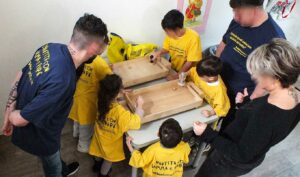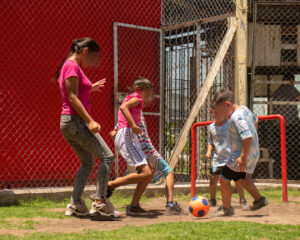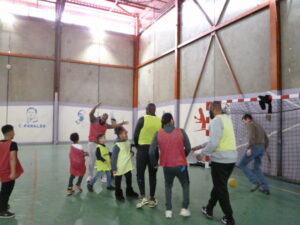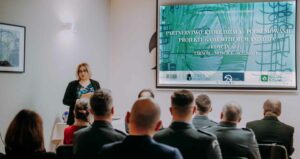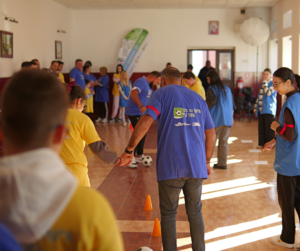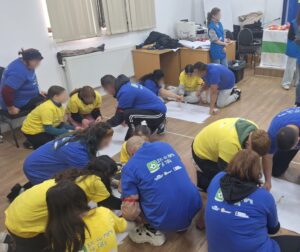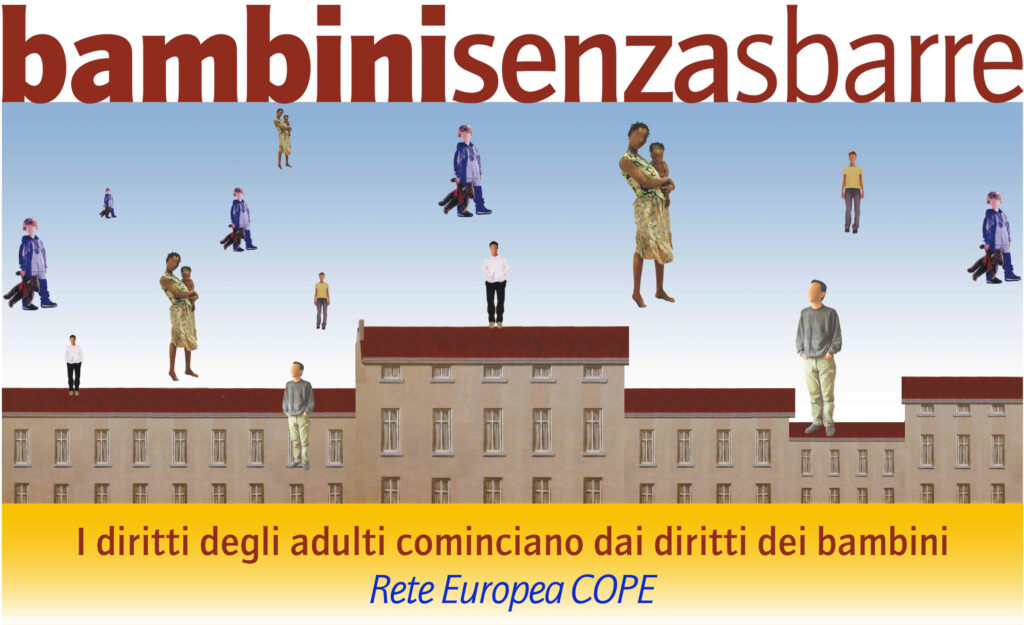“It’s a small group today,” I say to my colleague. Six families had registered, but only four families were waiting at the gate of Bremen Prison. It’s October, the days are already quite cool and the children are already wearing winter jackets, hats and scarves. Two families had to cancel due to illness. I feel very sorry for the two fathers who won’t have the opportunity to spend time with their children today.
This time, we once again have a few children of kindergarten or nursery age. And a 7-month-old baby. But at the very end, a taller boy walks in accompanied by a man. The two of them immediately catch my eye. Most of the children are accompanied by their mothers and occasionally a grandmother has been there too, but I had never seen a male companion before.
I walk over to the two of them. The accompanying person introduces himself as the child’s uncle and the imprisoned father’s brother. The young boy’s mother had to go to work at short notice, but the uncle wanted to make sure that the boy had the opportunity to see his father – beyond the confines of the visiting room where their time together is limited to just an hour. The uncle is also excited; he only sees his brother every few months, as his son is supposed to attend most of the visits.
Everything has already been lovingly set up again in the prison’s sports hall and the picnic table is generously laid.
When the imprisoned fathers enter the hall, it gets loud. The cheers of everyone present and the stomping of feet fill the sports hall – the 10-year-old runs ahead of everyone else towards his father.
The first few minutes of each event are always very heartwarming and we let the families settle in together first. However, the older boy and his father start right away with a game of soccer. They put a sports department employee in goal and start kicking the ball around.
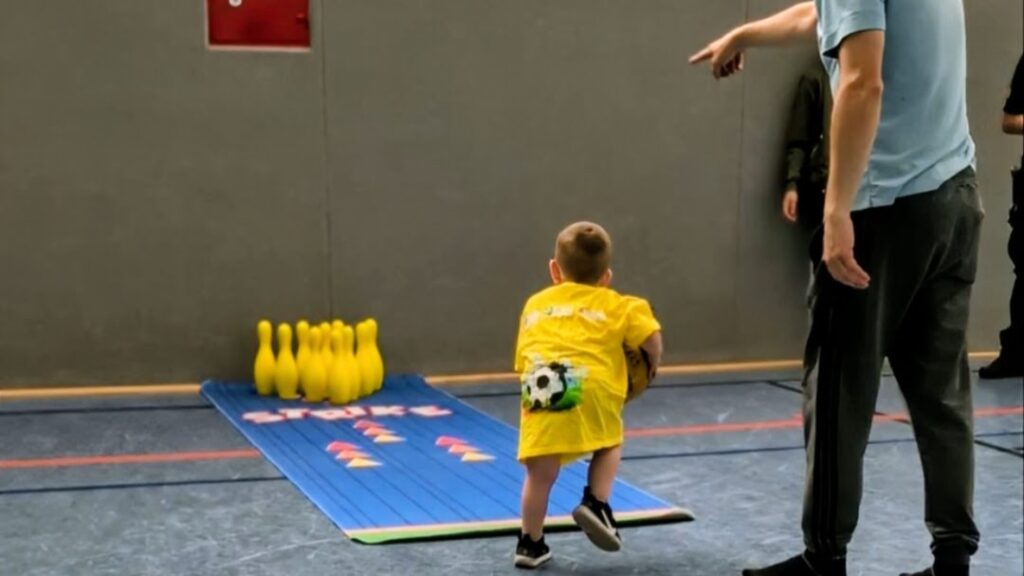
(© Hoppenbank e.V.)
I join the uncle, who tells me about the journey to today’s appointment: “He was quite quiet on the way here. It’s nice to see him blossoming now that we’re here.” We watch the two of them play for what seems like an eternity. Eventually, they are sweaty and exhausted and go to get something to drink and eat, and only then do the brothers really get around to greeting each other. They sit down at one of the tables we have set up with colouring materials, books and board games. Ludo is at the top of the pile. The uncle challenges his brother and his nephew to a game.
“It was great. I love my daddy”. — child
They sort the colours and the boy gets to choose his first. After reviewing the rules again—”kicking someone out is allowed”—they begin. Dice are rolled, laughter and curses when someone is kicked out. And lots of teasing but funny comments.
I only saw the boy win once. But judging the way the three of them were joking around afterwards, there can’t have been just one win.
The three of them come up to me, I have the Polaroid camera in my hand and have already taken pictures of the other families, which the detained fathers can keep with them or the children can take home. I take two photos with the dad and son, then a third one together with the uncle – “For Grandma – she wants a recent picture too,” says the boy.
“It meant a lot to me to have a change from the monotonous daily routine and to see my loved ones again.” – imprisoned father
The farewell between the families is once again very difficult to watch. The fathers try to hold back their tears. Some succeed, others less so. The small children don’t really understand yet that it will be a while before they see their fathers again. But still, everyone involved seems happy when they think back on the day.
The “Game with Mum & Dad” project is organised by Children of Prisoners Europe (COPE) and made possible with the support of the European Commission and UEFA Foundation for Children. It follows a model created and developed by Bambinisenzasbarre, which works nationwide in Italy. The Project aims to strengthen, maintain and enhance the bond between children and their imprisoned parents, and to generate systemic, child rights–based change across prison systems. The project includes a multi-month programme during which imprisoned parents, their children and family members—supported by educators—are monitored and involved in a series of meetings. The programme culminates in the “Game with Mum & Dad” match.
Rita Metzner, social worker at Hoppenbank, contributed to this article.
